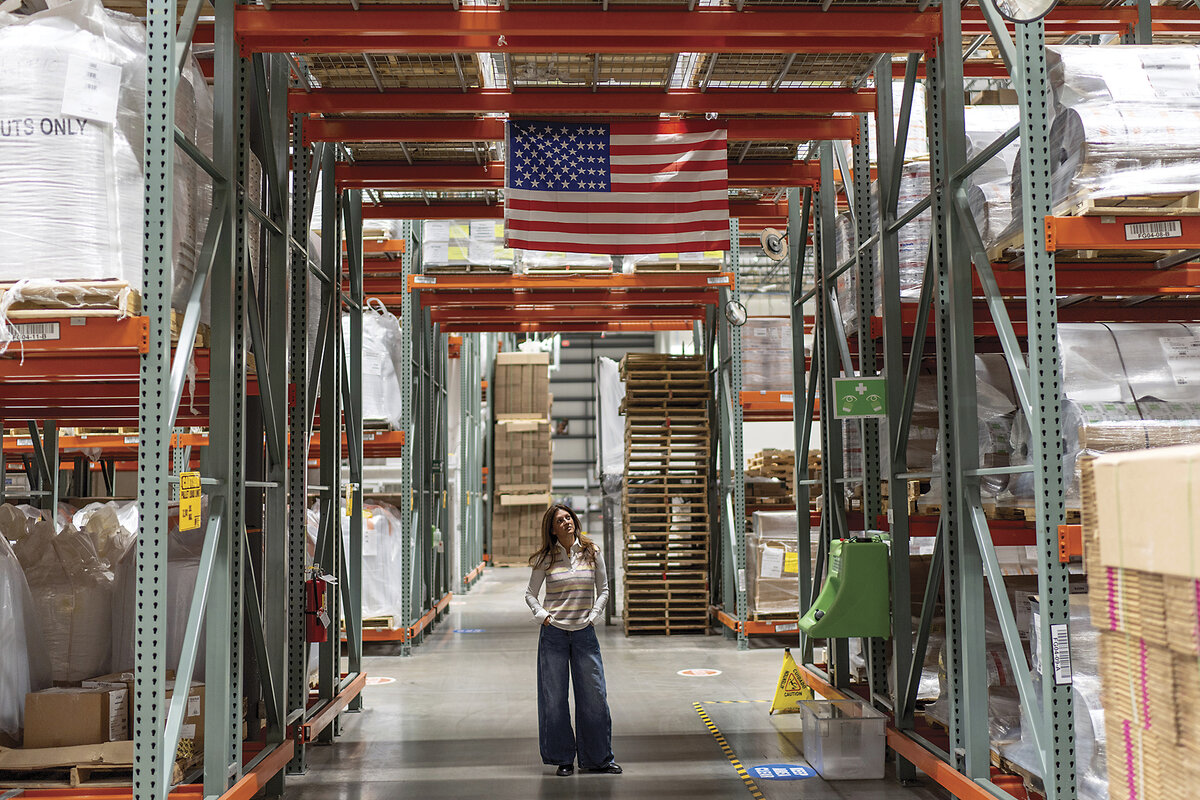‘From the American people’: Promises and drawbacks of US aid
Loading...
In his inaugural address of January¬Ý1961, President John F. Kennedy famously appealed to Americans‚Äô sense¬Ýof duty with his exhortation, ‚ÄúAsk not¬Ýwhat your country can do for you ‚Äì ask¬Ýwhat you can do for your country.‚Äù
Establishing the United States Agency¬Ýfor International Development (USAID) later that year, he, in effect, urged Americans to ask what they could do for their world, too. ‚ÄúThere is no escaping our obligations‚Äù ‚Äì moral, economic, and political ‚Äì as part of the ‚Äúinterdependent community of free nations,‚Äù Mr. Kennedy said at the time. He hoped poorer nations would rapidly ‚Äútransition into self-sustained growth,‚Äù and looked toward ‚Äúthe ultimate day when ... foreign aid will no longer be needed.‚Äù
Now, with the official shuttering of USAID, the flow of American development assistance has stopped. But the debate about its necessity and nature continues – and remains contentious.
In this week’s pairing of cover stories, we hear from several USAID workers who are struggling not only with the loss of their jobs but also with the idea that their country no longer sees value in providing international aid.
There is serious and understandable concern about the abrupt halt to USAID’s work earlier this year. Yet a reckoning over foreign aid’s utility, effectiveness, and assumptions about change has been underway for some time. An increasing number of aid professionals and host-country citizens are disquieted by the ongoing expectation of foreign aid. Some say that inappropriate external agendas and technologies have wasted resources, undermined local initiative and responsiveness, and fostered corruption. There is truth to this.
However, it is also true that U.S. generosity over the decades has made a tangible difference to countless individuals and communities. For instance, in Kenya, a USAID-funded microlending project – which helped thousands of entrepreneurs – was transformed into a large-scale, locally led, and viable commercial bank. In Zimbabwe, innovative community-based child protection strategies supported by USAID contractors filtered upward – and were adopted as national government policy. As one source told our reporter Erika Page, “If we as development professionals do a good job, we eventually put ourselves out of business.”
For the U.S. to learn from the limits or failures of some USAID projects, it is instructive to recall that the successes have built on respectful listening and genuine partnership. When the donor devolved decision-making, host communities and leaders set the priorities and committed to change.
And so, for thousands around the world, “from the American people” – the words of USAID’s motto – has come to mean much more than financial inputs. It has signified vision, opportunity, endeavor – in short, founding American principles. Such has been the “soft power” of U.S. ideals and assistance.
Today, amid the challenges posed by USAID’s demise, there are seeds of promise – and shifts in thought. It is worth repeating the concluding quote in a Monitor editorial from a few months ago, in which a Kenyan community activist said, “It is time to re-imagine the new international model that serves communities with dignity and respect.”
Armin Sethna worked in international development for 20 years. This column first appeared in the Aug. 11 issue of ∫£Ω«¥Û…Ò Weekly. Subscribe today to receive future issues of the Monitor Weekly magazine delivered to your home.




